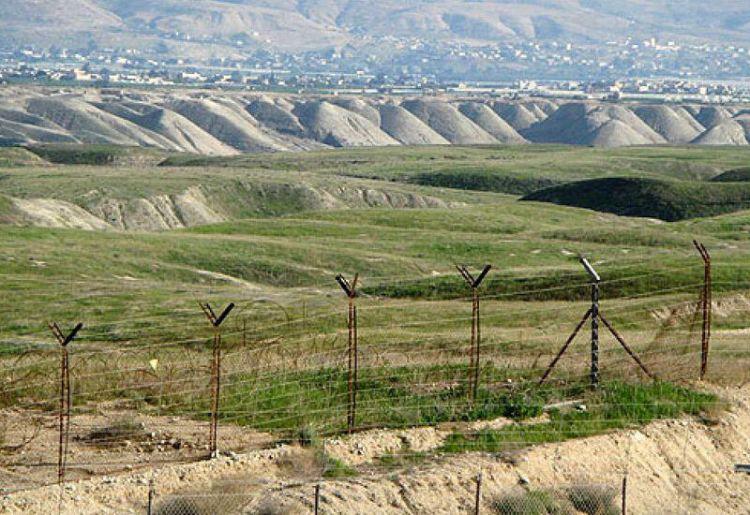Brussels-Moscow configuration: Subtle tug-of-war becomes more conspicuous

By Orkhan Amashov
Some of the provisions entailed in Articles 24–28 of the joint declaration by Russian President Vladimir Putin and Armenian Prime Minister Nikol Pashinyan were not pleasing to Azerbaijani ears, to put it mildly. Neither the reference to the dysfunctional OSCE Minsk Group, nor the use of the term “Nagorno-Karabakh” have gone unheeded in Baku. Furthermore, the absence of any definite mention of an emergent Azerbaijani-Armenian bilateral format was not lost on the discerning observer.
If the recent trilateral Brussels convocation was characterised with the enhancement of momentum on the way towards a peace deal, Pashinyan’s meeting with Putin did not augment this in any plausible way.
The date of April 19 was interesting. Prior to leaving for Moscow, Pashinyan received a telephone call from President of the EU Council Charles Michel and it can be assumed that some of the elements agreed upon on April 6 were discussed.
On that self-same day, Azerbaijani President Ilham Aliyev in his meeting with EU Special Envoy Toivo Klaar gave probably his most plausible assessment of Brussels' efforts towards the conclusion of a comprehensive deal. Ilham Aliyev described the convocation in question as “the official starting point” within the process, the logical conclusion for which is bound to be a peace agreement.
The joint Armenian-Russian declaration signed in Moscow, given its context and purpose, was unexpected to reflect the evolved state of affairs in a demonstrative way, but was supposed to be indicative of the progress that has been achieved over the past month. In this vein, it has not passed a litmus test of sufficient adequacy.
OSCE Minsk Group again: Why?
That Yerevan continues to hope for the resuscitation of the dead horse known as the OSCE Minsk Group is a known truism. Yet, what the Kremlin’s interest in the reference to the “the potential of the co-chairmanship” actually comprises, remains shrouded in obscurity. Even in the aftermath of the 2020 ceasefire deal, it was Moscow that appeared not to be exceedingly interested in the Minsk format, and the EU seemed to emphasise its relevance. The reverse is now true.
The truth of the matter is that the Kremlin is unlikely to have any vested interest in providing a zap of resuscitative metaphorical electricity, as whatever influence it is desirous of exerting over the process, it is capable of achieving without the OSCE’s instrument.
Russian Foreign Minister Sergey Lavrov earlier admitted the OSCE Minsk Group was dysfunctional, as its Western members cancelled the format. A group activity involving the U.S, France and Russia is unthinkable at this stage. Thus, the mention of the OSCE Minsk Group in the declaration cannot be seen as consequential, and, in all probability, nothing will eventuate from it.
Wrong terminology
Baku sets great store on the use of the right terminology in relation to all aspects of the former conflict. Moscow is perfectly aware of this. So is Yerevan. If the latter’s obduracy in its own backyard, however detested, has been perceived to be a somewhat tolerable nuisance, the employment of inadequate nomenclature by the Kremlin is a cause for a greater concern.
In Azerbaijan’s view, the terms “Nagorno-Karabakh conflict” and “Nagorno-Karabakh” are anachronistic. This line has been steadfastly followed and attained a sufficient degree of “acceptability” since November 2020.
Baku’s terminological demands have been satisfied in all the documents adopted within both trilateral formats and, given its indefatigable determination, one could expect that the employment of the wrong terminology will be resisted and successfully blocked in any document bearing Azerbaijan’s official signature.
Another moment of import, which has not escaped a diligent observer, was the lack of any discernibly recognisable emphasis on the nascent bilateral format involving direct talks between Azerbaijan and Armenia. If, in Brussels, the parties agreed to the creation of a bilateral commission to address the issues related to delimitation with the deadline set as “late April”, the April 19 joint declaration reverted this particular subject back to what was agreed in Sochi on November 26.
One cannot help but observe that, particularly in the light of the West’s deteriorated relations with Russia, signs of subtle competition between Brussels and Moscow over claiming the role of a central mediator for the post-conflict process have become more conspicuous.
If, in November 2020, Moscow had an upper hand, 18 months thereafter, Brussels appears to be more proactive in bringing about a lasting peace. Having said that, it should not be forgotten that Pashinyan’s recent meeting with Putin was mostly about the relations between the two countries. Thus, its evaluation in the context of the trilateral format is prone to limitations, ascribing secondary significance to it only.
---
Here we are to serve you with news right now. It does not cost much, but worth your attention.
Choose to support open, independent, quality journalism and subscribe on a monthly basis.
By subscribing to our online newspaper, you can have full digital access to all news, analysis, and much more.
You can also follow AzerNEWS on Twitter @AzerNewsAz or Facebook @AzerNewsNewspaper
Thank you!
